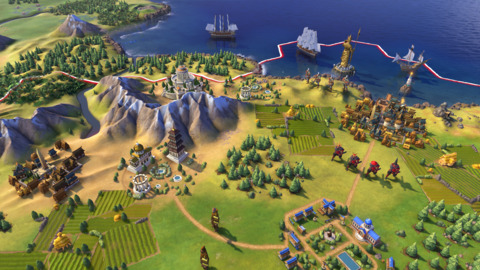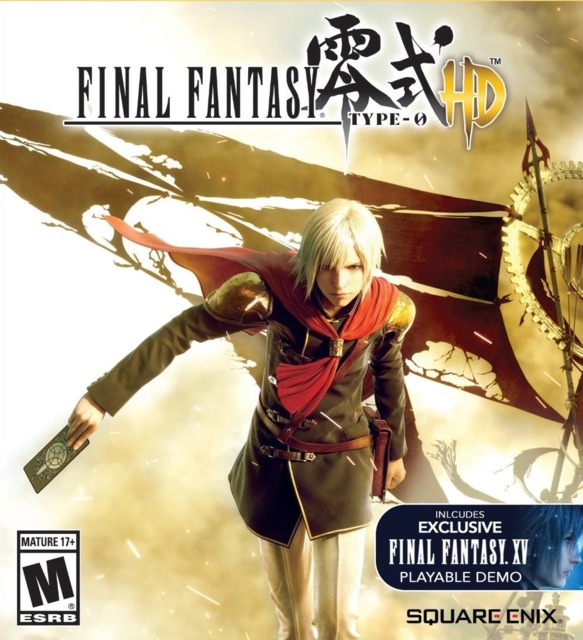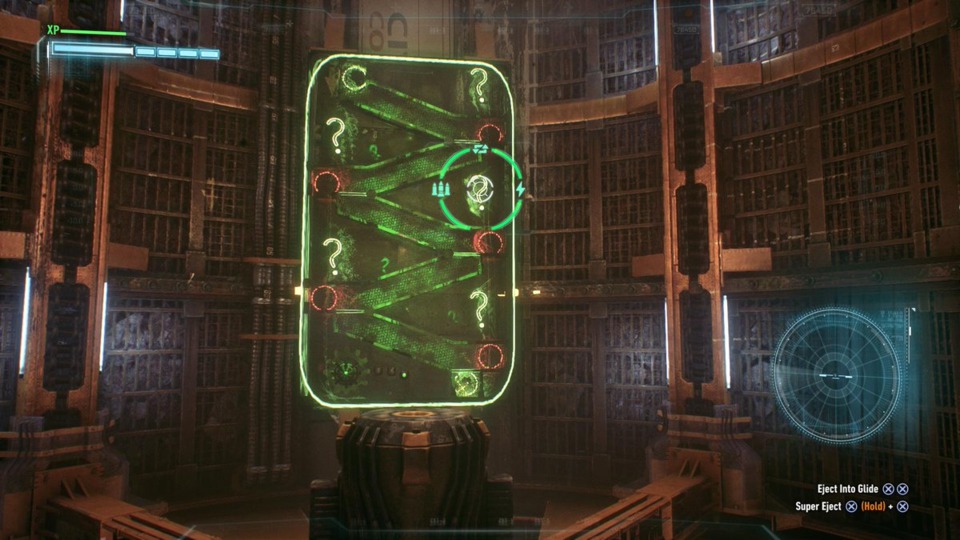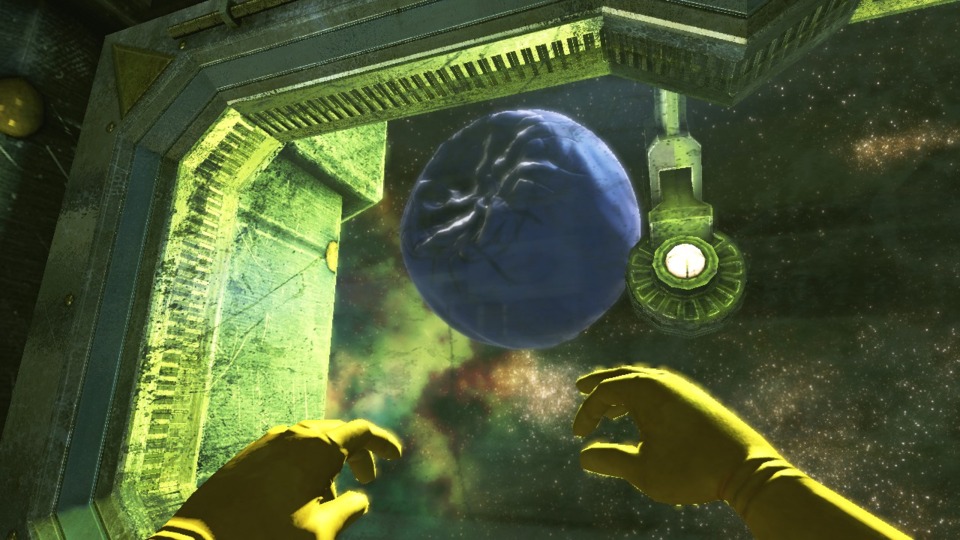Sunday Summaries 14/10/2016: Final Fantasy Type-0
By Mento 2 Comments
When I splurged on a PS4 and a bunch of discounted games to go with it at the end of last year, I figured I'd be done catching up sometime around the Summer. Now, I've just moved onto the penultimate game in my PS4 stack - though I did supplement it a few times since last December, in all fairness - and I'm wondering where all the time has gone. I didn't have a huge number of gaming goals this year, beyond the standard list of shame with its recurring usual suspects that I swear I'll get around to one of these days, but the hope was always that an idea for a big project would hit me at some point. Something like the chronogaming projects across the 'net that I hold in such high regard. When 2017 rolls around and I have far fewer games on the backlog to worry about, I think it might be time to start probing the ol' annals as it were and redouble my efforts on producing "Brief Jaunts" and other LP features I've presented in the past.

I have a few ideas for features on older games next year (or perhaps even later this year) that I'm still molding into a serviceable approximation of something someone might hypothetically want to read. One involves tackling my ridiculous PS2 backlog before it completely sails off beyond the horizon, taking my ailing fifteen-year-old PS2 console with it - I'm thinking of a feature where I have a single formatted memory card, and the fifty or so games in that backlog are competing for space on it like some kind of ark scenario. Only the worthy gets to be saved, not unlike how it went down in the Biblical tale, and maybe I'd complete the metaphor by dramatically throwing the unworthy PS2 discs into the ocean to drown with the sinners. Still in the workshop phase for that one, clearly. Another idea involves going back to those Legend Entertainment graphic adventure games, or some equally great but lesser known point-and-clicks from the 90s, while perhaps filling in a few of my personal gaps (could've phrased that better) for some the better known adventure titles I've yet to play. The trick is to find something folk would be interested in; I'm generally content to write about whatever tickles my fancy, but it's more fun when my writing finds an audience similarly invested in whatever video game esoterica I happen to be waffling on about.
New Games!
It's yet another busy week here in the middle of The Greatest Month, and one that offers a diverse assortment with something for everyone. Even Grandma! Provided Grandma's way into re-enacting how her WW1 veteran father died. Whoops, I threw dark too soon. Well, it is Halloween month.
We're going to start off with the PS4/PSV RPG Exist Archive: The Other Side of the Sky. While it's not reviewing particularly well, this JRPG from tri-Ace is being marketed as a successor to their Valkyrie Profile series; a group of games with a neat premise - you recruit Einherjars, the fallen spirits of heroes, and train them to become even stronger in death so that they might serve the armies of Valhalla for an upcoming war with the Asgard's many enemies - and a timing-based combat system that relied on wise party compositions, a variant of which is also present in the Project X Zone games. There's enough pedigree behind this one that I sort of don't mind if it ends up being dull and generic in other respects. An RPG is made or broken on its gameplay systems, as far as I'm concerned. If y'all have any hot takes on it, gimme both barrels in the comments. I doubt GB will be covering it.
Closely following that gamble in my wishlist additions for this week is another: The Jackbox Party Pack 3, the latest compilation package from the jokers at Jackbox Games. The second Party Pack had a disappointing ratio of hit-and-miss content, throwing out some enhanced/expanded versions of classics Fibbage and Quiplash along with new clunkers like Earwax and Bidiots. The new one has Quiplash 2 and a whole bunch of new experiments - unfortunately, Drawful 2 will remain a standalone - so here's hoping there's a better overall selection here. I definitely look forward to GB's content on it, at least, since I so rarely have enough people around to get a good party game going.

Naturally, I'm going to mention Civilization VI here as well. I've been out of the Civilization circuit for a long time - I switched from Civ 2 to Master of Magic and never looked back, even if one game saw many sequels and the other not so much - but I can still admire the granddaddy of the strategic empire sim genre and the various advances each new iteration brought with it, which in turn pass onto its various pretenders like the aforementioned superlative sorcery city sim. Maybe one day they'll make a Civilization game with an equally compelling combat system and more versatility when evolving one's civilization tech tree that doesn't involve making a beeline for gunpowder every time, but like I said: it's been a while since I've really dived deep into the annals of history (did I really need a second "annals" goof this Sunday? You decide! It's "yes", right?).
Talking of gunpowder and history, we also have the long-awaited release of Battlefield 1 this week, which suddenly makes the timing of that new Call of Duty beta make a whole lot more sense. Eschewing much of the trench warfare that the actual conflict revolved around almost entirely, the game instead has folk sprinting across various picturesque European maps looking for early versions of tanks, planes and "rigid airships" to take over and crash spectacularly. As always, I'm more curious about what the single-player campaign is like, which probably means I'm completely the wrong audience for this sort of game.
In our miscellaneous section this week, we have:

- Pokemon Sun Myung Moon, which would normally be a headliner but for the heavy competition this week. I'm sure it'll have a similar amount of additional feature creep that this series has been suffering with for years, along with a whole lot of new monsters with uninspired designs, all of them covered with those weird sci-fi Frieza bumps they keep giving Pokemon after Mewtwo became a fan favorite. All right, so maybe I'm just being contrary for the sake of it. Those starters seemed cool (except Poppolio, of course) and the colorful Alola/Aloha evolutions are... festive. I liked the one that turned Muk into a big pile of ice cream. I just find it hard to get excited for any kind of monster-raising game, try as I might.
- Skylanders Imaginators also involves managing menageries, but with an insidious twist of having to buy new toys to get anywhere with the game's completion percentage. I get antsy playing SpaceWhippers and passing by sections that are closed off because I lack the necessary power-up, I don't need a game where it'll remain that way forever unless I go to the nearest toystore and drop half a hundo on plastic figurines.
- Finally, Batman: Return to Arkham is a compilation of HD remakes for Arkham Asylum and Arkham City, a.k.a. the two good ones. It doesn't feel that long ago since I played those two, and it's literally not that long ago (like five days) since I played the mechanically identical Arkham Knight, so I'll be passing on this one. I'd really prefer it if these constant remasters went a little further back than seven years ago.
Wiki!
It's been a low-key week on the Giant Bomb Wiki, but it has given me some time to ratiocinate on how we're surfacing some information currently. I've spent my usual allotted wiki time - that is, when I'm listening to podcasts and my current video game is too distracting - on adding releases. Specifically, all the Wii Virtual Console releases of PC Engine and TurboGrafx-16 games. I know I said I was temporarily done with that system, but this is more like sweeping the floor after furnishing/painting a new room - the busywork's done, it's just some clean-up left to knock out before I can call it a day.

It's been a curious process. I've been drawing from Wikipedia's three lists for Virtual Console releases - one each for Japan, North America and Europe/Australia regions respectively - and working down those lists alphabetically to ensure I don't keep doubling back. With each game, I confirm it has all its Wii Virtual Console releases - sometimes there's just the one, sometimes it's all four regions currently supported by the GB Wiki - and occasionally toss in a Wii U Virtual Console release or PS3 PSN "PC Engine Classics" release when applicable. I'll be moving onto those two (shorter) lists next, filling in whatever gaps are left. I've processed 33 pages so far, which is about a quarter of the total amount for the Wii VC lists: there's been 119 PC Engine releases on the Japanese Wii, and 59/58 for the North American and European lists (for whatever reason, Europe did not get Bravoman), but there is a whole lot of overlap.
As for the whole "surfacing current information" comment in the lede, I've been pondering specifically on how best to highlight games available on digital distribution networks. The administrators of the Giant Bomb Wiki, which is to say Jeff, decided some time ago that we would no longer differentiate between retail and digital versions of a game due to how in almost all cases of the former, the latter would also be available. It would therefore be redundant to create a separate platform page. There's also the matter of how far digital-only games have come since the beginning of the previous gen, and how many now have a similar degree of production behind them and are priced at equivalent amounts to those sold on discs that any distinction between "downloadables" and physical media has become meaningless. That streamlining is just for the general wiki, however; for releases, we usually want to include as many items as possible to fully account for every variant of any given game, whether that variance comes down to the region where it was released or the form it was released in. What complicates matters is how, more and more frequently, some games will be sold on retail disc in one region and digital-only in another: this was the case with some versions of Zero Time Dilemma, and the European version of Drakengard 3. However, we'd be flooding the releases page if we had separate retail and digital releases for each console in each region, especially for a big multiplatform game that comes out on everything, everywhere. Maybe our best bet still is to add that sort of anomalous information to the core page's "Overview" field and not worry about messing around with the release system too much. All the same, it's getting highly specific with the details that makes the wiki what it is.
Final Fantasy Type-0!

Good lord, this game. I almost don't know where to start. Let's start by shining some light on my hypocrisy, shall we? Remember back a little further up the page where I said that, in most RPGs, they're made or broken by the amount of attention that is spent on developing their various systems, features and mechanics? That naturally comes from my background as a game designer, which I apparently feel I need to bring up at every juncture, and how I tend to view aspects like those as infinitely more important to the RPG experience than graphics or even the story and characterization. The key to a good RPG to create a long, long path for the player to follow, and then create a reason or twenty for them to want to follow it to the very end. A good story does that, but more so does a game with an elaborate and customizable character progression mechanic, a compelling combat system that evolves as you play as your characters grow ever stronger, and some well-considered and varied mission design for its story critical quests and side-quests alike.
In many respects, Final Fantasy Type-0 - what was once Final Fantasy Agito XIII, and set in the same universe as Final Fantasy XIII and XV with a handful of shared concepts - is an RPG that prioritizes gameplay systems first and foremost. It's actually profuse with the damn things, with multiple systems thrown at the player as soon as they begin and many more following after they've had a few missions under their belt and have gone through the expedited orientation process. Simply put for the sake of brevity, the game is split into two modes not dissimilar to how modern Persona handles itself:
First, there's the action part, where players pass through dungeons fighting monsters or liberating towns from the requisite evil invading empire. This is all real-time, with none of the usual transitions that occur in Final Fantasy RPGs (with the one exception of when the player is travelling the world map - these random encounters are easily avoided by using chocobos, though, if they're not your thing. I know some folk are still very apprehensive about random encounters in their games). Type-0's combat makes liberal use of a feature called "Killsight", which I recall seeing something similar in Tales of Vesperia. Essentially, you're given a brief window to attack as indicated by a special lock-on cursor at which point you either deal serious damage to the opponent or kill them outright, depending on how much HP they have. In most cases, the timing of these "killsight" opportunities arrive just as the enemy is about to strike or just after they've attacked - in both cases, after they've dropped their guard. While the player can simply spam their best attacks and spells, they're often better served evading attacks and waiting for the most opportune moment to quickly resolve battles. This is of significant importance in the game's many story missions, where the player is rated based on their time and receives rewards based on their performance and speed. You also have systems like drawing phantoma from fallen foes and switching between characters on the fly to account for certain enemy weaknesses, like those that can only be targeted by ranged or magical units. Enemy soldiers like to shoot at you from balconies an awful lot, turns out.
It's the second mode, though, where the game starts to lose me. These involve, like Persona's "social" mode, a tightly scheduled "free period" of roaming largely devoid of combat or peril (unless you leave the home base for some side-questing) that instead requires that the player use a finite pool of hours to their maximum efficiency. The player's home base, Akademeia, is filled with NPCs who want to talk to you about lore or game mechanics or have cutscenes that further establish the more story significant characters, but each requires a two hour investment - it's best not to ask why a conversation comprised of fifty words should take that long, that's just how the game rolls - and there's only so much time left on the clock until the next big story mission arrives. It's a little aggravating to be forced to pick and choose, especially since you aren't initially aware which of these little tête-à-têtes lead to multiple successive parts and have greater payoff for you further down the road. You can also spend time listening to lectures, since you are at school and everything, which gives your entire party a permanent boost to various stats or just a whole lot of XP to make the grinding less severe.
Which is the other major aspect of this game that took some getting used to: the game gives you fourteen playable characters right off the bat, each of which replaces the last in combat missions if you should let anyone on your side fall. This not only means that you're spoiled for choice to an almost paralyzing extent, but that they all need a reasonable amount of training in the field to stay competitive with the game's difficulty curve and ever-stronger enemies; if you get to the point where the cadets are dropping like flies, you'll soon have to deal with the unenviable scenario of having a gaggle of underleveled schoolchildren to fight the huge boss at the end of the mission after all your heavy-hitters have taken off. Fortunately, the game lets you quit missions and retry whenever you want, retaining all the XP and money you've made along the way to build your party up a bit and improve your odds of succeeding the subsequent time through. As with Dragon Quest Heroes and its own similar system of convenience-focused mulligans, Type-0 can be a harsh game but a fair one.
The game has no shortage of other systems and clever features, like spell-crafting, "secret" dispatch missions that only occur when the console is turned off, chocobo breeding and raising (@zombiepie rejoice!), and these weird RTS battles, that I'm sure I'll have even more material to elucidate on for the following week's update. I'm not completely sold on it yet, but given all my earlier palaver about a preference for distinctive RPG mechanics I'd better put my money where my mouth is and give this game the ol' college try.
The Other Stuff!
I don't have a specific follow-up game this week, but I do have a few more thoughts on some previous games I've covered that I found myself returning to periodically throughout the past seven days:
Batman: Arkham Knight: When I wrote about Arkham Knight last week with what I assumed was some degree of finality, it was just before I was about to embark on the remaining optional post-game open-world content. These can be neatly divided into three categories: the Gotham's Most Wanted side-quests, the AR challenges and everything involving the Riddler.
The Gotham's Most Wanted side-quests are worth pursuing intermittently throughout the game as a break from the story. They involve Batman's many other recurring foes and their felonious activities while Scarecrow and the Arkham Knight have you otherwise distracted with the main story progression, most of whom have multiple parts that play identically: The Penguin's missions, for example, involve tailing a truck (yaaaaaay) to its hideout, and then fighting a melee battle with a large group of thugs with Nightwing's assistance before blowing up Penguin's illegal guns stash and getting out of there. It's a bit more of a drag to play multiple instances of stuff like that consecutively, though, which is why I suggest you tackle them every so often while the story's still going. The game does mix it up with some entertaining shorter vignettes involving lesser foes like (minor spoilers here, so I'll just break out the filter) Man-Bat, Firefly, Professor Pyg (who had to have come from the gritty-ass 00s) and Deacon Blackfire. The Hush scenario in particular was cleverly done. The assassin Deathstroke replaces the Arkham Knight at the head of his little militia post-game, and becomes another target to arrest once you've taken out all of the militia's various checkpoints and watchtowers across the city.
The Riddler stuff is a bit more of a chore, given that the insecure asshole has placed almost 250 targets across the city to collect, from trophies to destructible objects to lore-based riddles to solve. I don't mind puzzling all that out so much as I dislike the slow process of finding fifty different green-tinted Riddler informants to beat down, each of whom doles out a mere handful of target locations. I've already spoken previously about how irksome the Riddler challenges are, which occasionally pop up after passing milestones in the game's story and almost always involve the Batmobile in some way, either as a puzzle that requires its winch hook and weaponry or as a lap race with various hazards to avoid. As with previous instances of having to deal with the Riddler's bullshit, your mileage may vary.

The AR Challenges are where the game's toughest hurdles are presented, and also serve to highlight the game's mechanical faults under a harsh glare. The conditional predator challenges, for example, where you need to fulfill three distinct objectives to receive the maximum amount of gain can be needlessly difficult because of the odd ways the game can fail the player. It'll frequently have you grappling to safety at randomly chosen destinations somewhere in the vicinity of where you were pointing, as there's no effective way to do that more precisely when you're looking for a quick exit - say, after you've silently taken down an enemy and his armed companion is about to turn the corner. The new multiple-person "fear takedown" can often miscount how many people you actually took down: a requirement to hit four people in one chain somehow doesn't count when you begin by taking down two people simultaneously (it's an upgrade you can unlock) and then two others. The other AR challenges involve such fun requirements like not getting hit in a fistfight or, even worse, trying to maintain a long combo chain for a large score bonus. For whatever reason, it's very hard to keep a chain going because certain factors - like hitting a guy's shield or one of the larger brutes who tend to shrug off most minor attacks - will void it instantly, and we once again run into the problem of the game's approximated auto-targeting, where it'll just aim for whichever enemy is closest to the center of the screen (one presumes) rather than the foe that makes the most sense in the moment, like the guy ever so slightly to the left of the first guy who is both a lot closer to Batman and about to hit him with a baseball bat. In a pitch melee, it's nigh on impossible to avoid this auto-targeting snafu and you'll frequently hit a shield guy or brute by accident mid-flow. It says something that the races - usually the least fun part of any open-world game's "bonus challenges" - are generally more palatable.
Pixel Puzzle 2: Anime: I got this free in an IndieGala giveaway. It's a jigsaw game that's fun enough for a few minutes at a time, though it seems like the cheapest thing ever put together: just a few bucks to the DeviantArt anime community for the images and the same interface as their previous jigsaw puzzle game. As long as you find a way to get rid of the obnoxious fairy (the delete button!) it's the sort of casual experience you can drop in and out of when you have a period of time free that's too short for anything more substantial. Nothing worth remarking on, though, and I really don't care for how the Esc key just instantly quits the puzzle and eliminates all your progress. Was kinda hoping for something like a "wanna quit?" prompt at least.
Viscera Cleanup Detail: Still playing this as well. I'm not sure if it's my OCD tendencies or how the game keeps tossing delightful scenarios my way that is sustaining my interest. On the last level I played, I got to clean the eponymous ship of Event Horizon of its various demonic piles of gore, which was complicated by how gravity was turned off when you arrive. That meant a lot of blood splatter floating around in hard-to-reach places, as well as an unholy mess when you inevitably turned the gravity back on. I particularly liked that, in lieu of a furnace to destroy all the trash and viscera, you simply threw everything into an airlock and got rid of it that way. Many levels have their quirks and various sci-fi references - such as one where I had to use my mop to knock down some familiar-looking skinned corpses in a jungle environment with ominous clicking sounds in the distance, or one with an arctic excavation that went horribly awry and left whole heaps of indeterminate alien limbs everywhere - and while I doubt I could wholeheartedly recommend the game's two-to-three hour sessions of endlessly carting around bloody buckets and trash bins full of detritus to burn, I still maintain that the game does manage that difficult-to-accomplish Zen-like quality where you can relax your mind by completing routine tasks while essentially on auto-pilot. Even if I do tip over buckets and boxes full of guts with an alarming frequency, and I'm surrounded by the gooey innards of a mound of hapless scientists, it always amounts to a super chill gaming experience. Excellent way to keep my mind focused on what I want to write about next, too.

